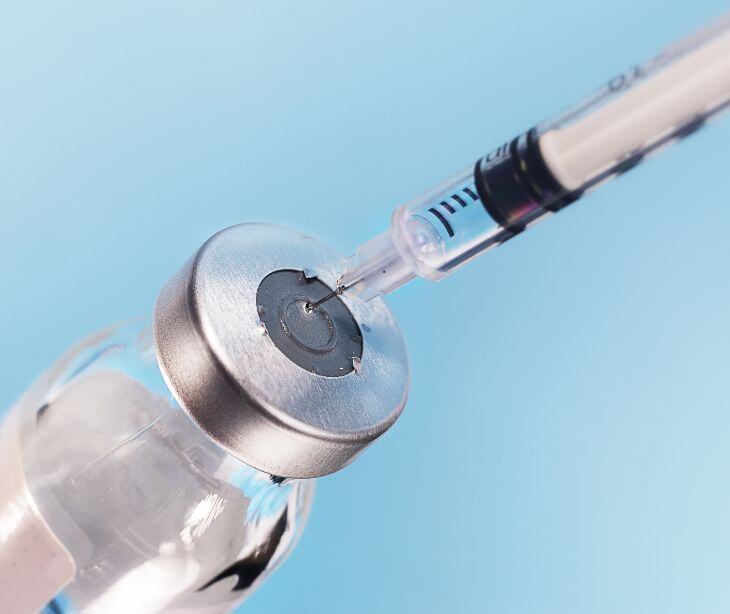
Data breaches are alarmingly common, with organizations across all industries working to secure their email processes against cyber threats. To address growing concerns and meet compliance requirements, organizations should develop a HIPAA compliant email policy to protect patient information.
The importance of email security in HIPAA compliance
The Health Insurance Portability and Accountability Act (HIPAA) is the primary legislation in the U.S. that governs the protection of patients' data privacy. HIPAA-covered entities and their business associates must meet strict compliance requirements. Failure to do so can result in fines, legal consequences, and reputational damage.
In Email Security in Clinical Practice: Ensuring Patient Confidentiality, it’s noted that “e-mailing or faxing unencrypted patient health information is really no more secure than sending that information on a postcard.” The study further advises that “those physicians who wish to send personal health information by email should use an encrypted or otherwise secure system.”
Email remains a common attack vector for threat actors and data thieves, making it a focus area for HIPAA compliance. Although email vendors may offer Transport Layer Security (TLS) encryption, this alone does not ensure HIPAA compliance. For communication to be fully protected, the sender and recipient must integrate encryption into their email applications.
It's worth noting that popular email providers, such as Outlook/Office 365, Gmail, and Yahoo Mail, do not come with HIPAA compliance built-in. Therefore, organizations handling PHI must take proactive steps to ensure their email processes are HIPAA compliant.
Components of an effective HIPAA email policy
By creating a HIPAA compliant email policy, organizations can satisfy several compliance requirements and effectively protect patient data. Here are the elements to consider:
Email encryption
Email services typically provide baseline security and data protection, but may not offer more advanced security features like encryption. Organizations should ensure that both messages in transit and at rest are encrypted to meet HIPAA standards.
HIPAA compliant business associate agreements
Third-party email providers are considered business associates under HIPAA. Therefore, they must sign and provide business associate agreements before handling ePHI. These agreements should detail the service provider's responsibilities regarding data protection measures for administrative, physical, and technical domains.
Email retention policies
HIPAA mandates that covered entities must store compliance-related documentation, including email data and related policies, for at least six years. Documentation is helpful in legal cases and for accountability.
Patient consent for email communications
When emailing patients and other parties with ePHI, HIPAA-covered organizations and entities must receive written patient consent to use email as a communication method before sending any protected information.
Legal counsel in policy development
Seeking legal counsel when creating HIPAA compliant email policies is highly recommended, as attorneys experienced with HIPAA compliance are best qualified to draft effective policies that address the nuances of the regulations.
Implementing and enforcing the HIPAA email policy
By creating clear, comprehensive email policies and training staff on adhering to these policies, organizations can better position themselves to protect their ePHI. Companies should use HIPAA compliant email and data encryption software solutions to ensure built-in compliance.
Errors made by healthcare staff, such as mistakenly sending ePHI via an unencrypted email or to unintended recipients, have resulted in numerous high-profile healthcare data breaches and related HIPAA penalties. Establishing rules and best practices gives HIPAA compliant organizations a platform for training or re-training employees, ensuring the proper measures have been implemented.
In the news
Lafourche Medical Group experienced a data breach when a hacker accessed an employee's email account through a phishing attack. The breach potentially exposed the PHI of approximately 34,862 patients.
OCR's investigation found that Lafourche had insufficient security measures, including a failure to conduct a security risk assessment and a lack of policies and procedures for reviewing information system activity. Lafourche settled with OCR for $480,000 and agreed to a two-year corrective action plan.
How can Paubox help
HIPAA compliant email is guaranteed through Paubox Email Suite, which provides needed protections without extra logins, passwords, or portals. With our HITRUST CSF certified solution, all emails are encrypted, sent directly from your existing email platform.
Compliance is ensured with Paubox Marketing and Paubox Email API. Both allow covered entities to send targeted messages without stressing about possible HIPAA violations. Understanding and implementing HIPAA is fundamental to HIPAA compliance; let Paubox help you with an important aspect of HIPAA and its rules today.
FAQs
Are there any specific technical requirements for HIPAA compliant email?
While HIPAA does not prescribe specific technical requirements, healthcare providers should implement reasonable safeguards, such as encryption and secure email servers, to protect the privacy and security of PHI transmitted via email.
What should healthcare providers do if they suspect a HIPAA violation in email communications?
If a healthcare provider suspects a HIPAA violation in email communications, they should conduct a thorough investigation to determine the nature and extent of the violation. They should also take appropriate corrective measures and report the incident to the relevant authorities, such as the Office for Civil Rights (OCR) within the Department of Health and Human Services (HHS).
How often should healthcare providers train their staff on email best practices?
Healthcare providers should regularly train staff on email best practices, including how to handle PHI securely and avoid potential HIPAA violations. The frequency of training may vary based on organizational needs, but sessions should be conducted at least annually and whenever there are updates or changes to HIPAA regulations or email policies.
Learn more: HIPAA Compliant Email: The Definitive Guide
Subscribe to Paubox Weekly
Every Friday we'll bring you the most important news from Paubox. Our aim is to make you smarter, faster.




